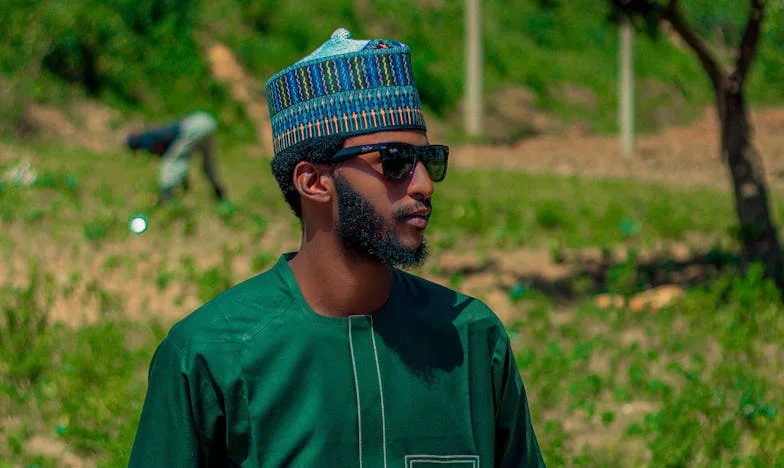A Mother’s Stand: Born With You
“Stop staring at my son!” The words ripped from my throat before I could think. The fluorescent lights of the grocery store flickered overhead, illuminating the faces turned our way—some curious, some pitying, most just confused. My five-year-old, Ethan, clung to my hand, his bright blue eyes wide, the prominent reddish birthmark covering the left side of his face making him the center of unwanted attention. He didn’t say a word, but I saw his small shoulders tense, shrinking under the weight of those stares.
A woman by the apples mumbled an apology, her cheeks flushing, but the damage was done. I could feel my heart pounding, anger and shame battling in my chest. Why couldn’t they just see him? Just Ethan, my sweet, animal-obsessed kid who could name every dinosaur and always asked if bees got lonely in winter. But in this small Ohio town, difference was a spectacle.
That night, as I tucked Ethan into bed, I caught him tracing the outline of his birthmark in the dim light. “Mommy, why do people look at me like that?” he whispered. His voice cracked something inside me. I wanted to tell him it didn’t matter, but it did. I couldn’t lie to him.
“Sometimes,” I said, forcing a steadiness I didn’t feel, “people look because they don’t understand. But you are perfect, exactly the way you are.”
He looked doubtful. “But I’m not like the other kids.”
I kissed his forehead. “That’s what makes you, you. And that’s amazing.”
But later, alone in the kitchen, I sobbed into my coffee, frustration burning in my veins. My husband, Mike, tried to comfort me, but I could see the worry in his eyes. “I know it’s hard,” he said, “but maybe it’ll get better as he gets older. People get used to things.”
“Or maybe they don’t,” I shot back. “And meanwhile, Ethan grows up thinking he’s less than. I can’t let that happen.”
I lay awake that night, replaying every flinch, every whisper, every time a parent pulled their child away from Ethan at the playground. Something inside me snapped. I made a decision.
The next morning, while Ethan was at kindergarten, I drove to the tattoo parlor across town. The artist, a heavily inked woman named Rachel, raised an eyebrow when I told her what I wanted—a replica of Ethan’s birthmark, down to the exact shape and color, tattooed on my own left cheek.
“Are you sure?” she asked, her voice gentle but firm. “That’s…a big step.”
“I need my son to see that he’s not alone. That he’s not something to be hidden.”
Rachel nodded, her eyes softening. “Okay. Let’s do this.”
It hurt—a lot. The buzzing needle was relentless, but I gritted my teeth and thought of Ethan, his small face crumpling with confusion at the world’s cruelty. When Rachel finished, I stared at my reflection in the mirror. The birthmark was there, a vivid echo of Ethan’s, and for the first time, I felt something shift inside me.
When I picked Ethan up from school, he froze when he saw me. His eyes darted from my face to his. “Mommy, you have one now, too!”
I knelt down, cupping his cheeks. “Now we match. We’re both special, just the way we are.”
He grinned, a wide, genuine smile. “I love it!”
Mike was less thrilled when he saw me. That night, after Ethan went to bed, he sat at the kitchen table, his jaw tight. “Emily, what were you thinking?”
“I was thinking that our son deserves to feel proud of who he is. If people are going to stare, let them stare at both of us.”
He shook his head, rubbing his temples. “You can’t fight everyone. You can’t protect him from everything.”
“Maybe not. But I can show him that he’s not alone.”
The next days were a blur of whispers and outright stares—at the bank, at the school drop-off, even at church. Some people avoided me; others asked if it was contagious. But a few—just a few—smiled, their eyes kind. One mother approached me at the playground, her own daughter shyly holding her hand.
“My son has a port-wine stain, too,” she said quietly. “Thank you for doing this. You have no idea how much it means.”
Ethan stood a little taller after that. He stopped covering his face with his hands. He wore his favorite dinosaur T-shirts and even stood up to a kid who called him a monster. “No, I’m not. I’m Ethan, and I’m awesome.”
My relationship with Mike grew tense. He was afraid for us—afraid that I was making Ethan more of a target. We fought in hushed tones, words sharp as broken glass.
“You’re making him stand out more!”
“He already stands out, Mike! Pretending it isn’t there won’t help him!”
Sometimes I wondered if I was doing the right thing. Was I making things worse? But then I’d see Ethan laughing with another kid, unselfconscious, or find a note from a teacher: “Ethan helped a new student today, told her it’s okay to be different.”
One evening, after a particularly rough day—someone spat at my feet and called me a freak—I sat with Ethan on the porch. The sun was setting, painting the sky in colors as wild and beautiful as his birthmark. He leaned against me, our cheeks pressed together.
“Mommy, do you ever wish you didn’t have it?” he asked.
I thought for a moment. “No, buddy. Because it reminds me every day how brave you are. And I’m proud to be like you.”
He nodded, and for the first time, I saw peace in his eyes. Maybe the world would never understand. But we did.
Sometimes I wonder—when does the need to belong outweigh the courage to stand out? Would you have done what I did? Or would you have tried to protect your child by hiding?
